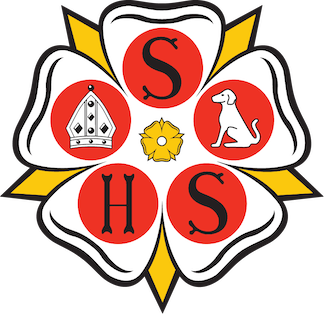ICT, Business & Computing
Curriculum Intent
Our curriculum is designed to prepare students for the digital and fast paced world they live in. Computing, ICT and Business Studies sits within the same Curriculum Area at Sherburn High School.
Our subjects give young people the skills and abilities to engage positively with the digital and global world. They learn how products and business systems work, the skills that businesses require to thrive, with ICT skills that then can lead onto programming skills that make creative use of a variety of resources including traditional and digital technologies, and how these all help improve the world around them and for them to become a valued member of a digital society.
We provide opportunities which allow students to develop a knowledge of a range of ICT, Digital Literacy and Computing in KS3 including; ICT (how digital systems work), Digital Literacy (using digital systems and apps) Multimedia (combining different forms of media into a cohesive product) and Computing (creating digital systems and apps).
Students will grow in confidence through dedicated teaching environments, modern ICT equipment and software, and specialist teaching.
At the centre of our subjects is creativity and enterprise as we teach subjects which draw, develop and implement a range of different disciplines; including mathematics, science, engineering, geography and art. The subject embeds high quality literacy skills through analysis and evaluation techniques.
As students progress to KS4 they may choose an area to study within the department from our 3 KS4 option courses.
iMedia and Business Studies both allow for deeper study of the digital and business world they live in, potential career opportunities and with the skills developed at KS3 the confidence to task risks, become resourceful, innovative, enterprising and capable citizens. The subjects encourage students to design and make products that solve real and relevant problems, within a variety of contexts, while considering their own and other’s needs, wants and values.
They equip learners with the knowledge, understanding and skills needed to work in the creative digital and business sector.
Computer Science develops understanding and application of the fundamental principles and concepts of the subject, including:
- abstraction, decomposition, logic, algorithms, and data representation;
- analysing problems in computational terms through practical experience of solving such problems, including designing, writing and debugging programs;
- thinking creatively, innovatively, analytically, logically and critically;
- understanding the components that make up digital systems, and how they communicate with one another and with other systems;
- developing a deep understanding of computational thinking and how to apply it through a chosen programming language;
- developing valuable thinking and programming skills that are extremely attractive in the modern workplace;
Underpinning the curriculum are intent are the following 3 key skill areas:
Research and Design
- Engage in an iterative process of design and making;
- Undergo primary and secondary research techniques into a range of clients’ needs;
- Identify and solve their own problems and the problems of specific clients and target market groups;
- Develop products that respond to the needs of clients in a variety of situations;
- Use a variety of creative digital media applications or programming techniques;
- Develop and communicate design ideas.
Make
- Select from and use specialist digital media tools, techniques, processes to produce a planned product;
- Demonstrate knowledge and understanding of digital applications and pre-production techniques.
- Produce and pitch product design ideas for an identified target market
- Create programming solutions
Evaluate
- Investigate new and emerging digital technologies;
- Personal project work, analysing how the product fulfils the requirements of the specification and the user’s needs, wants and values;
- Recognise how their product can be modified to better meet its intended aim and target audience;
- Understand developments in ICT and other digital concepts and its impact on individuals, society and the environment.
- Identify errors or more efficient coding in programming solutions

 Follow us on Twitter
Follow us on Twitter